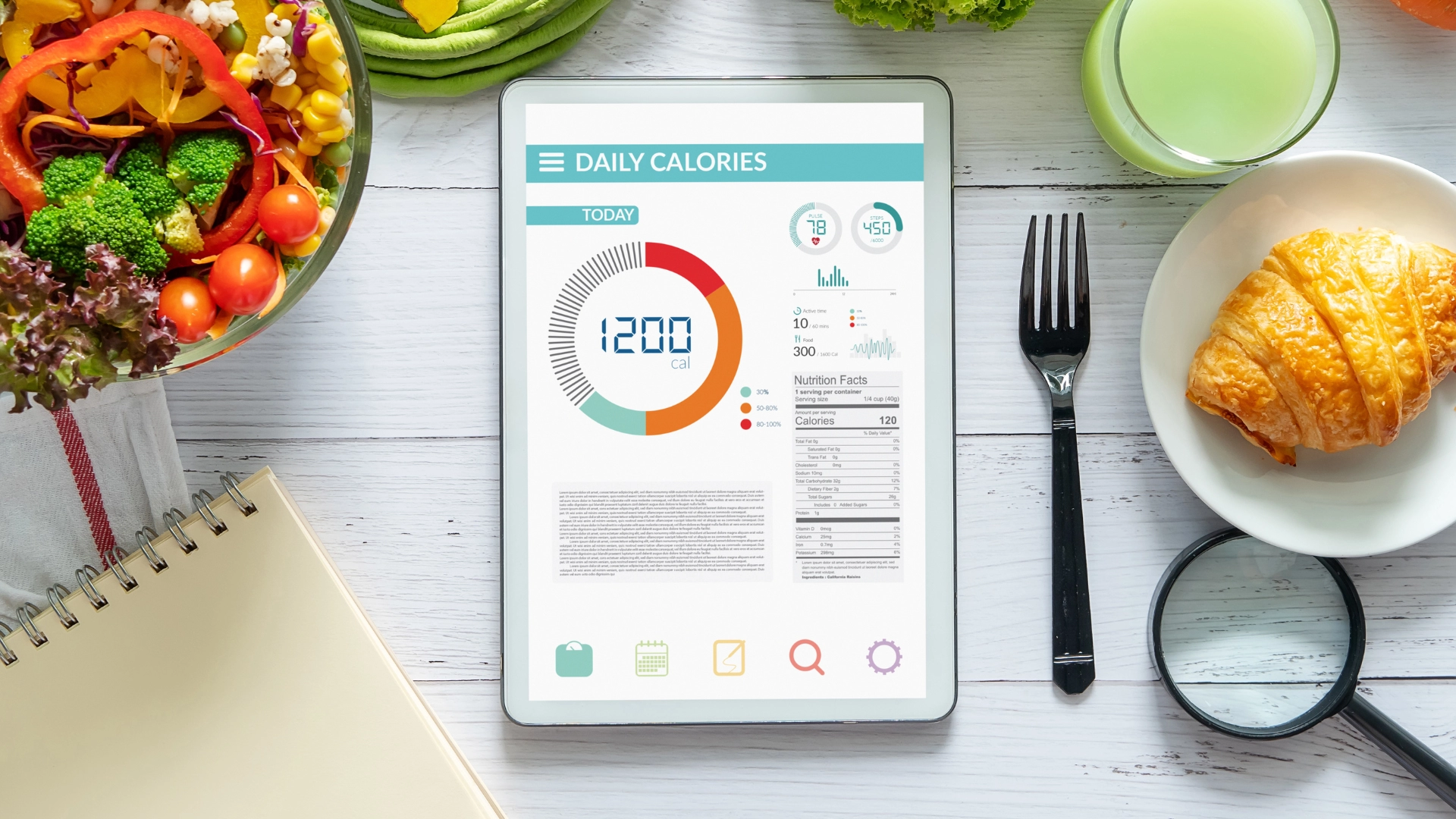Top 10 Nutrient-Dense Foods for Weight Gain
A healthy weight increase involves more than just eating more calories; it also involves making nutrient-dense food choices that give your body the vitamins, minerals, and macronutrients it needs. We’ll look at the top ten nutrient-dense foods in this blog post that can boost general health and assist you reach your weight gain objectives.
1. Nuts and Nut Butters
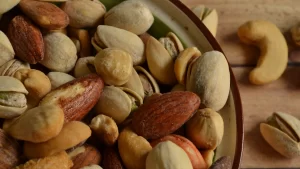
Nuts and nut butters are calorie-dense powerhouses packed with healthy fats, protein, and essential nutrients.
- Almonds (per 100g):
– Calories: 579
– Protein: 21.2g
– Carbs: 21.6g
– Fat: 49.9g
- Peanut Butter (per 100g):
– Calories: 588
– Protein: 25g
– Carbs: 20g
– Fat: 50g
2. Avocados
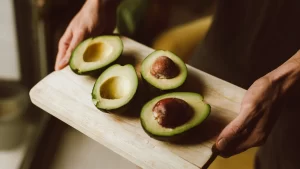
Avocados are nutrient-dense fruits high in healthy monounsaturated fats and fiber.
- Avocado (per 100g):
– Calories: 160
– Protein: 2g
– Carbs: 9g
– Fat: 15g
3. Whole Grain Bread
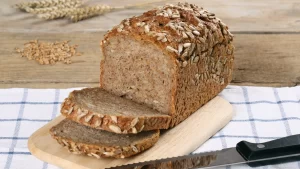
Complex carbohydrates from whole grains provide sustained energy and are essential for weight gain.
- Whole Wheat Bread (per 100g):
– Calories: 247
– Protein: 13g
– Carbs: 41g
– Fat: 3.4g
4. Lean Meats
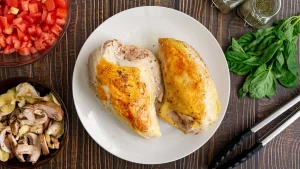
Chicken, turkey, and lean beef are excellent sources of protein, crucial for muscle growth.
- Chicken Breast (per 100g):
– Calories: 165
– Protein: 31g
– Carbs: 0g
– Fat: 3.6g
5. Fatty Fish
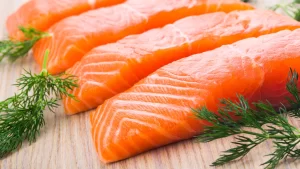
Salmon, mackerel, and sardines are rich in omega-3 fatty acids and high-quality protein.
- Salmon (per 100g):
– Calories: 208
– Protein: 20g
– Carbs: 0g
– Fat: 13g
6. Greek Yogurt

Full-fat Greek yogurt is a protein-rich dairy option that’s also high in probiotics.
- Greek Yogurt (full-fat, per 100g):
– Calories: 97
– Protein: 9g
– Carbs: 3.6g
– Fat: 5g
7. Dried Fruits
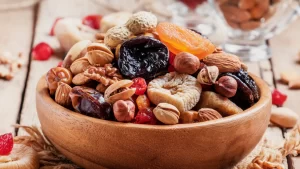
Raisins, dates, and dried apricots are calorie-dense and rich in natural sugars and fiber.
- Raisins (per 100g):
– Calories: 299
– Protein: 3.1g
– Carbs: 79g
– Fat: 0.5g
8. Quinoa
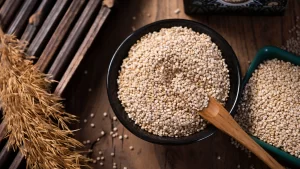
This complete protein source is also rich in complex carbohydrates and fiber.
- Quinoa (cooked, per 100g):
– Calories: 120
– Protein: 4.4g
– Carbs: 21.3g
– Fat: 1.9g
9. Olive Oil
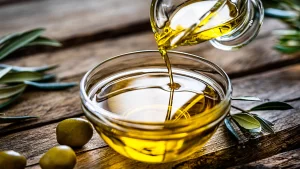
A healthy fat source that’s easy to add to various dishes for extra calories.
- Olive Oil (per 100g):
– Calories: 884
– Protein: 0g
– Carbs: 0g
– Fat: 100g
10. Sweet Potatoes
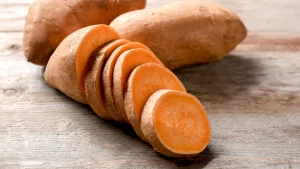
These starchy vegetables are rich in complex carbohydrates and various vitamins and minerals.
- Sweet Potato (cooked, per 100g):
– Calories: 86
– Protein: 1.6g
– Carbs: 20g
– Fat: 0.1g
Incorporating These Foods into Your Diet
To make the most of these nutrient-dense foods:
- Add nuts and dried fruits to your breakfast cereal or yogurt.
- Use avocado as a spread on whole grain toast or in smoothies.
- Include lean meats or fatty fish in your main meals.
- Cook with olive oil and add it to salads for extra calories.
- Snack on Greek yogurt with honey and nuts between meals.
Remember that maintaining a healthy weight increase requires consistency. For best results, make an effort to include these nutrients in your regular diet and complement your dietary efforts with a suitable strength training regimen.
Conclusion
A healthy weight gain involves more than just consuming more calories; it also involves consuming nutrient-dense foods that promote muscular growth and general wellness. You can achieve your weight gain objectives in a sustainable and healthful way by include these top 10 nutrient-dense foods in your diet.
Before making any big dietary changes, always get advice from a medical expert or trained dietician, particularly if you have any underlying medical concerns. They can offer tailored guidance and guarantee a secure and efficient weight gain process.
FAQ’s
1. What are some of the best nutrient-dense foods for healthy weight gain?
Nuts and nut butters, avocados, whole grain bread, lean meats, fatty fish, Greek yogurt, dried fruits, quinoa, olive oil, and sweet potatoes are a few of the best nutrient-dense foods for a healthy weight gain.
2. How many calories are in 100g of almonds?
100g of almonds contain approximately 579 calories.
3. Which food on the list has the highest protein content per 100g?
Among the foods listed, chicken breast has the highest protein content at 31g per 100g.
4. Are there any plant-based protein options in the list?
Yes, quinoa is a plant-based complete protein source on the list, containing 4.4g of protein per 100g when cooked.
5. Which food on the list is the most calorie-dense?
Olive oil is the most calorie-dense food on the list, containing 884 calories per 100g.
6. How can I incorporate these foods into my diet for weight gain?
These foods can be included in meals by include lean meats or fatty fish, using avocado as a spread, cooking with olive oil, and having Greek yogurt with honey and nuts as a snack. You can also add nuts and dried fruits to cereals or yogurt.
7. Is it necessary to eat all of these foods to gain weight?
No, you don’t have to consume each and every one of these things. You can select the alternatives on the list to ensure a balanced nutritional intake while also fitting your dietary requirements and tastes.
8. Should I consult a professional before starting a weight gain diet?
Absolutely, it is always advised to speak with a medical practitioner or qualified nutritionist before making big dietary changes, particularly if you have any underlying medical issues.

